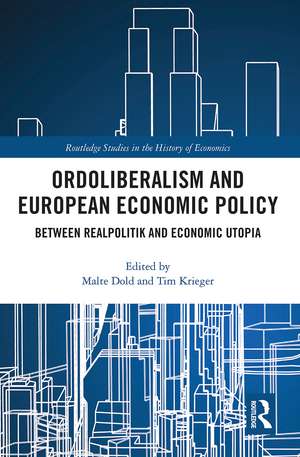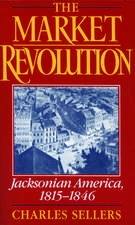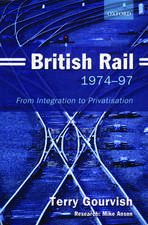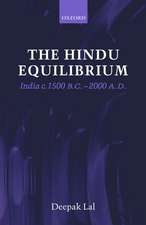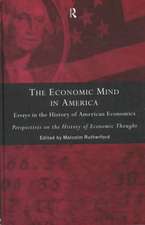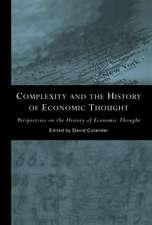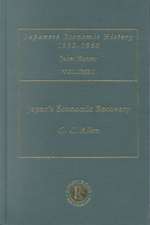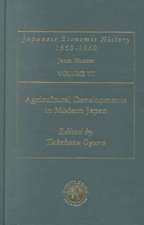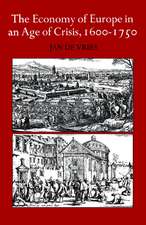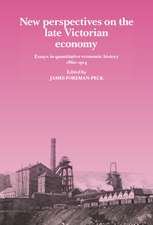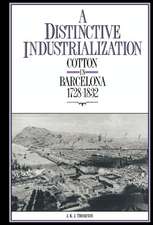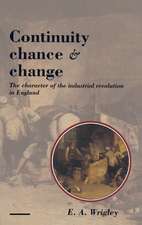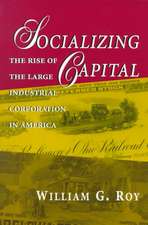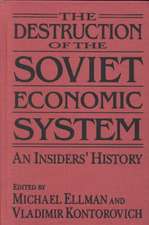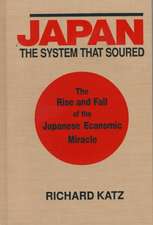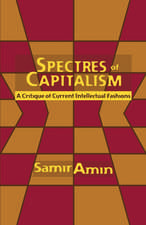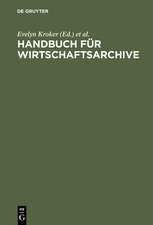Ordoliberalism and European Economic Policy: Between Realpolitik and Economic Utopia: Routledge Studies in the History of Economics
Editat de Malte Dold, Tim Kriegeren Limba Engleză Paperback – apr 2021
Ordoliberal discourse both attempts to offer political solutions to socioeconomic challenges, and to find an ideal market order that fosters individual freedom and social cohesion. This tension between realpolitik and economic utopia reflects the wider debate on how far economic theory shapes, and is shaped by, historical contingencies and institutions.
The volume will be of interest to policymakers as well as research scholars, and graduate students from various disciplines ranging from economics to political science, history, and philosophy.
| Toate formatele și edițiile | Preț | Express |
|---|---|---|
| Paperback (1) | 393.50 lei 6-8 săpt. | |
| Taylor & Francis – apr 2021 | 393.50 lei 6-8 săpt. | |
| Hardback (1) | 1006.77 lei 6-8 săpt. | |
| Taylor & Francis – 26 sep 2019 | 1006.77 lei 6-8 săpt. |
Din seria Routledge Studies in the History of Economics
-
 Preț: 370.72 lei
Preț: 370.72 lei -
 Preț: 302.54 lei
Preț: 302.54 lei - 8%
 Preț: 392.82 lei
Preț: 392.82 lei -
 Preț: 311.28 lei
Preț: 311.28 lei - 9%
 Preț: 1003.10 lei
Preț: 1003.10 lei -
 Preț: 665.68 lei
Preț: 665.68 lei - 9%
 Preț: 935.39 lei
Preț: 935.39 lei -
 Preț: 384.63 lei
Preț: 384.63 lei -
 Preț: 280.74 lei
Preț: 280.74 lei -
 Preț: 326.99 lei
Preț: 326.99 lei -
 Preț: 318.31 lei
Preț: 318.31 lei -
 Preț: 214.15 lei
Preț: 214.15 lei -
 Preț: 310.43 lei
Preț: 310.43 lei -
 Preț: 326.82 lei
Preț: 326.82 lei -
 Preț: 308.97 lei
Preț: 308.97 lei -
 Preț: 324.46 lei
Preț: 324.46 lei -
 Preț: 395.81 lei
Preț: 395.81 lei -
 Preț: 392.71 lei
Preț: 392.71 lei - 26%
 Preț: 850.91 lei
Preț: 850.91 lei - 27%
 Preț: 995.39 lei
Preț: 995.39 lei - 18%
 Preț: 1005.01 lei
Preț: 1005.01 lei - 18%
 Preț: 1002.60 lei
Preț: 1002.60 lei - 26%
 Preț: 1046.46 lei
Preț: 1046.46 lei - 18%
 Preț: 1280.31 lei
Preț: 1280.31 lei - 18%
 Preț: 1055.51 lei
Preț: 1055.51 lei - 18%
 Preț: 1055.51 lei
Preț: 1055.51 lei - 28%
 Preț: 987.72 lei
Preț: 987.72 lei - 25%
 Preț: 824.17 lei
Preț: 824.17 lei - 18%
 Preț: 1061.93 lei
Preț: 1061.93 lei - 18%
 Preț: 716.32 lei
Preț: 716.32 lei - 18%
 Preț: 1006.07 lei
Preț: 1006.07 lei - 18%
 Preț: 1069.92 lei
Preț: 1069.92 lei - 12%
 Preț: 342.67 lei
Preț: 342.67 lei - 26%
 Preț: 991.34 lei
Preț: 991.34 lei - 18%
 Preț: 1056.00 lei
Preț: 1056.00 lei - 18%
 Preț: 1076.53 lei
Preț: 1076.53 lei - 18%
 Preț: 698.08 lei
Preț: 698.08 lei - 22%
 Preț: 332.02 lei
Preț: 332.02 lei - 18%
 Preț: 1169.78 lei
Preț: 1169.78 lei - 18%
 Preț: 1059.84 lei
Preț: 1059.84 lei - 30%
 Preț: 852.88 lei
Preț: 852.88 lei - 25%
 Preț: 830.10 lei
Preț: 830.10 lei - 18%
 Preț: 1125.78 lei
Preț: 1125.78 lei - 18%
 Preț: 1062.98 lei
Preț: 1062.98 lei - 18%
 Preț: 847.96 lei
Preț: 847.96 lei - 18%
 Preț: 953.01 lei
Preț: 953.01 lei - 18%
 Preț: 1168.76 lei
Preț: 1168.76 lei
Preț: 393.50 lei
Nou
Puncte Express: 590
Preț estimativ în valută:
75.29€ • 78.83$ • 62.30£
75.29€ • 78.83$ • 62.30£
Carte tipărită la comandă
Livrare economică 05-19 aprilie
Preluare comenzi: 021 569.72.76
Specificații
ISBN-13: 9780367776824
ISBN-10: 0367776820
Pagini: 296
Dimensiuni: 156 x 234 x 18 mm
Greutate: 0.55 kg
Ediția:1
Editura: Taylor & Francis
Colecția Routledge
Seria Routledge Studies in the History of Economics
Locul publicării:Oxford, United Kingdom
ISBN-10: 0367776820
Pagini: 296
Dimensiuni: 156 x 234 x 18 mm
Greutate: 0.55 kg
Ediția:1
Editura: Taylor & Francis
Colecția Routledge
Seria Routledge Studies in the History of Economics
Locul publicării:Oxford, United Kingdom
Public țintă
PostgraduateCuprins
Part I: Introduction
Foreword Wolfgang Schäuble
1. Introduction Malte Dold and Tim Krieger
Part II: The Historical and Contemporaneous Roots of Ordoliberalism
2. Ordoliberalism’s Embeddedness in the Neoliberalisms of the 1930s and 1940s Stefan Kolev
3. Ordoliberalism and Democracy - How the Interwar Period Changed the Agenda of German Liberalism Gerhard Wegner
4. Ordoliberalism, Social Catholicism, and West Germany’s Social Market Economy, 1949-1976 Volker Berghahn
5. The Protestant Roots of Ordoliberalism and the Re-emergence of the North-South Conflict Josef Hien
6. Ordoliberalism and the Cross-National Disciplinary Revolution in Liberalism Kenneth Dyson
7. Ordoliberalism from the Perspective of a U.S.-trained Macroeconomist Rüdiger Bachmann
8. The Interdependency of Law and Economics in Ordoliberal Theory and EU Law Heike Schweitzer
Part III: Ordoliberal Explanations of the Eurozone Crisis
9. The Commitment Problem and the Euro Crisis Johannes Becker and Clemens Fuest
10. Is Ordoliberalism Institutionally Useful for the EU? Wolf Schäfer
11. Ordo, Macro and the Euro: Germany in the Dock Oliver Landmann
12. The Deutsche Mark and the Euro: Prerequisites for a Stable Currency Otmar Issing
13. Ten Commandments to Overcome the Eurozone’s Many Crises Norbert Berthold
Part IV: Advancements of the Ordoliberal Framework after the Crisis
14. The Eurocrisis and Ordoliberalism: Towards a More Perfect Market of Jurisdictions in the Eurozone? Thomas Biebricher
15. Ordoliberalism and the Future of European Integration Michael Wohlgemuth
16. The Normative Legacy of Walter Eucken and Beyond: EU Cohesion Policy as a Fundament of a European Social Market Economy Julian Dörr, Nils Goldschmidt and Alexander Lenger
17. The Enigma of German Ordoliberalism: Is There a Future for a European Social Market Economy? Brigitte Young
18. New Ordoliberalism and the Euro-Dividend Bernhard Neumärker
19. The Future of German Ordoliberalism Lars P. Feld and Ekkehard A. Köhler
20. Ordoliberalism and Beyond: Economic Liberalism for the 21st Century Tim Krieger and Malte Dold
Notă biografică
Malte Dold is an assistant professor in the Economics Department at Pomona College in California. Previously, he spent two years as a postdoctoral fellow at New York University. He holds a master’s degree in philosophy and economics from the University of Bayreuth, and received his PhD in economics from the University of Freiburg. His research lies at the intersection of behavioral economics, welfare economics, and political economy. In particular, his research looks at normative and methodological issues in behavioral economics and the historical interdependencies between Austrian and ordoliberal economic thought.
Tim Krieger is the Wilfried Guth Professor of Constitutional Political Economy and Competition Policy at University of Freiburg. He holds a master’s degree in economics from the University of Kiel, and received his PhD in economics from the University of Munich. He worked as an assistant and interim professor at the universities of Mainz, Marburg, and Paderborn. His research focuses on economic, social, and education policies in aging and globalizing societies with a special focus national and supranational institutions. In addition, he specializes in the economics of conflict, terrorism, and crime.
Tim Krieger is the Wilfried Guth Professor of Constitutional Political Economy and Competition Policy at University of Freiburg. He holds a master’s degree in economics from the University of Kiel, and received his PhD in economics from the University of Munich. He worked as an assistant and interim professor at the universities of Mainz, Marburg, and Paderborn. His research focuses on economic, social, and education policies in aging and globalizing societies with a special focus national and supranational institutions. In addition, he specializes in the economics of conflict, terrorism, and crime.
Descriere
This edited volume examines the historical roots of ordoliberalism, shows how ordoliberal scholars explain the institutional origins of the Eurozone crisis, and presents creative policy proposals for the future of the European economy.
